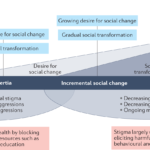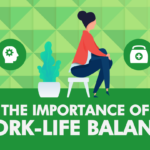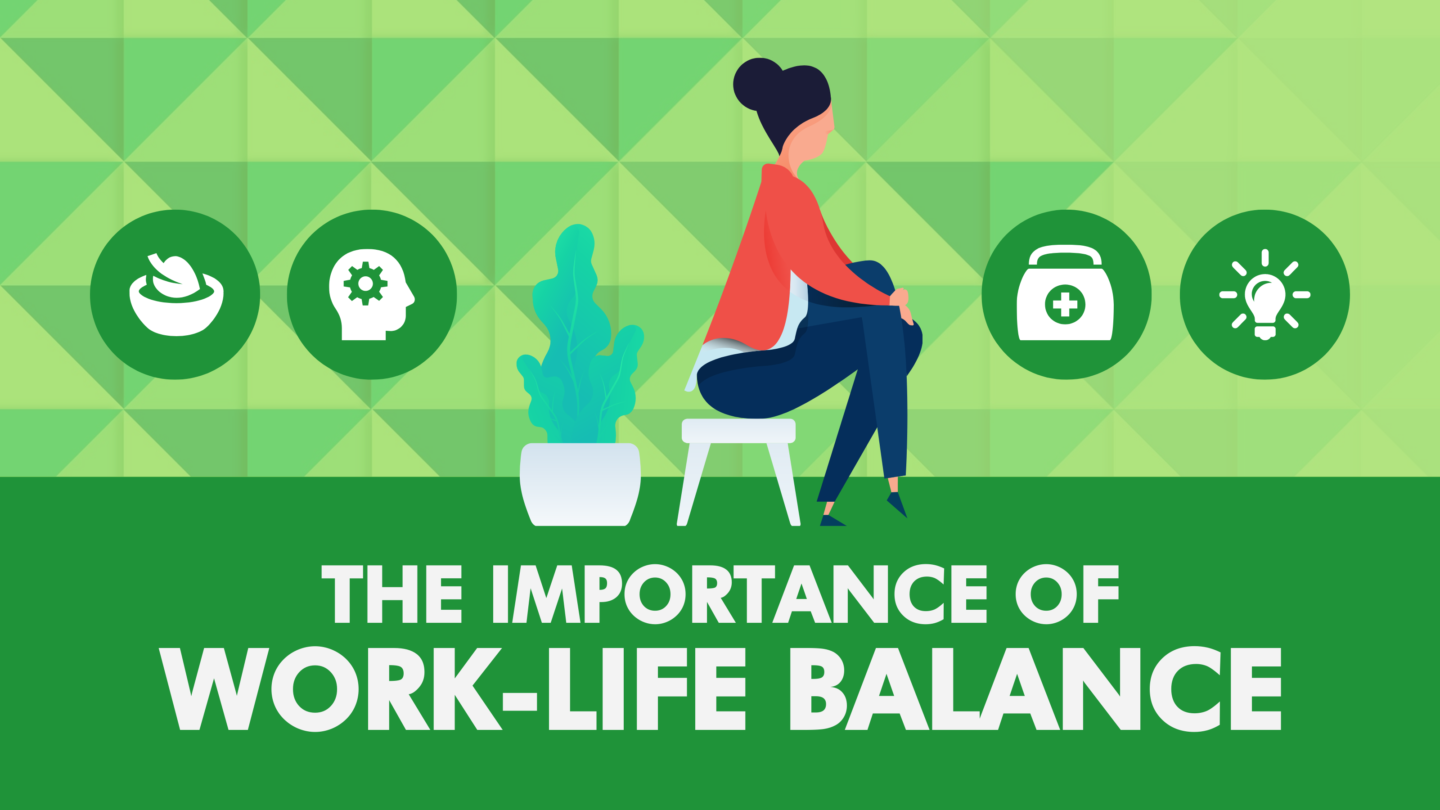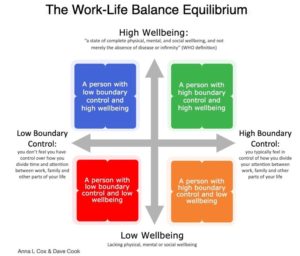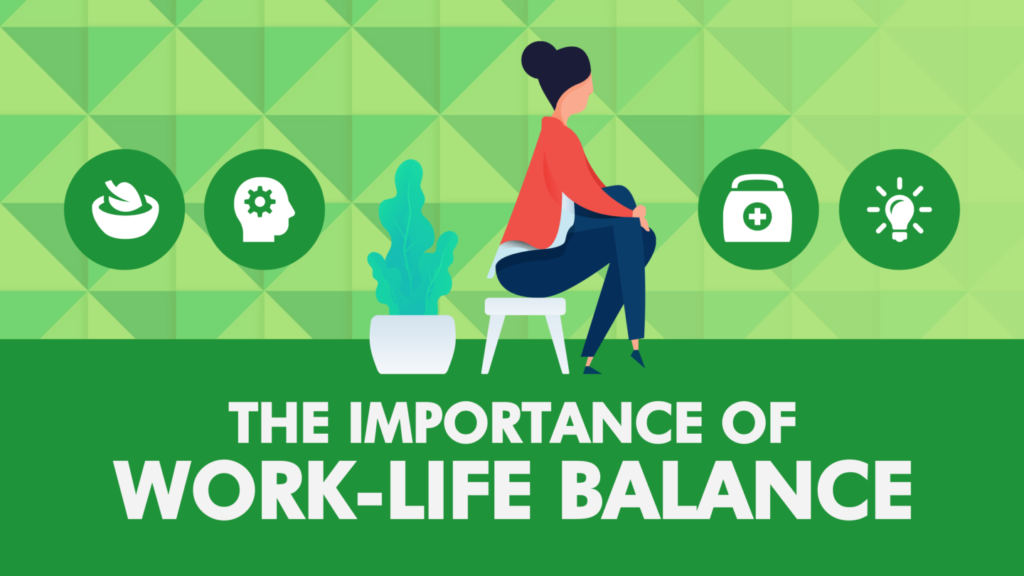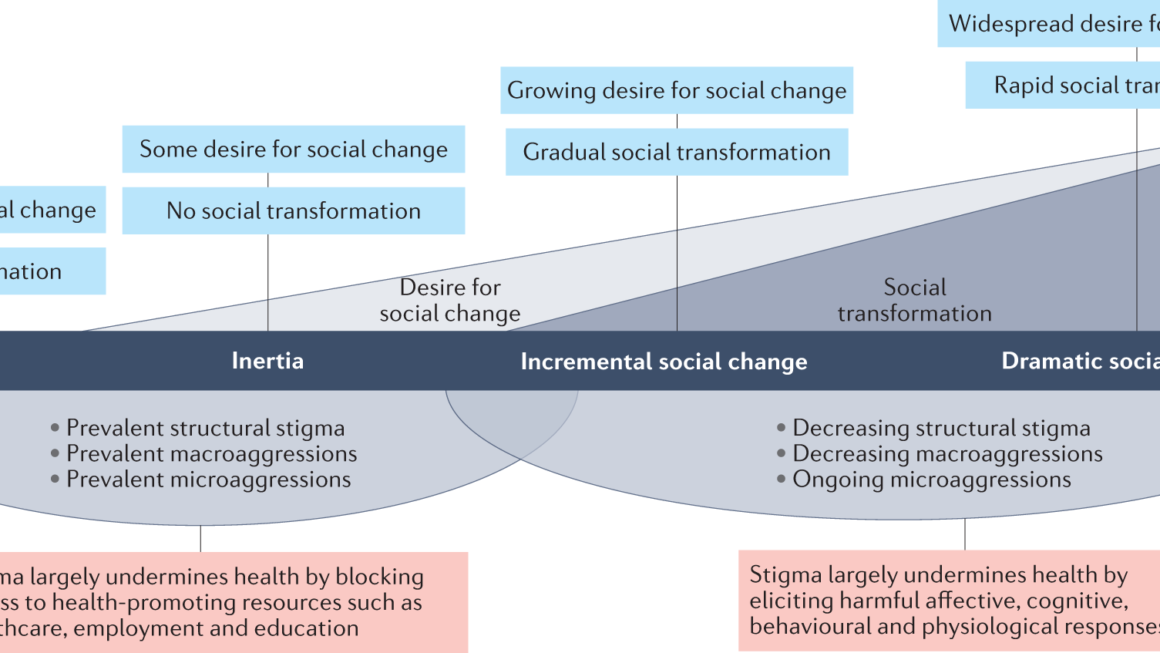In the fast-paced and demanding world of work, it is essential to create a supportive workplace environment that prioritizes women’s mental well-being and work-life balance. By establishing a culture of empathy, understanding, and flexibility, organizations can play a pivotal role in ensuring that women feel supported and empowered in both their personal and professional lives. This article will explore practical strategies and initiatives that can help create a conducive work environment for women, fostering better mental health and work-life integration.
Promoting Flexible Work Arrangements
Allowing telecommuting options
Promoting flexible work arrangements, such as telecommuting options, can greatly support women’s mental well-being and work-life balance. By allowing employees to work remotely, whether it be from home or a co-working space, women have the flexibility to manage their personal and professional responsibilities more effectively. This flexibility can alleviate the stress and pressure of commuting to the office every day, providing them with the opportunity to create a work environment that is conducive to productivity and well-being.
Implementing flexible working hours
Flexible working hours can also contribute to women’s mental well-being and work-life balance. By offering the ability to adjust their schedules to fit their needs, women can better manage their personal commitments, such as caring for children or elderly parents. This flexibility allows them to create a harmonious integration of their personal and professional lives, reducing the feelings of guilt or overwhelm often associated with trying to balance both spheres. It also empowers women to prioritize their well-being by accommodating their individual energy levels and peak productivity times.
Offering part-time or job-sharing opportunities
Another way to support women’s mental well-being and work-life balance is by providing part-time or job-sharing opportunities. These arrangements allow women to have greater control over their working hours and responsibilities, reducing the strain of juggling multiple commitments. Part-time roles or job-sharing arrangements can be particularly advantageous for women with young children, who may need more flexibility in their work hours. By offering these options, employers demonstrate their commitment to supporting women in achieving a healthy work-life balance and recognizing the unique challenges they may face.
Providing Supportive Employee Benefits
Offering maternity and paternity leave
Offering maternity and paternity leave is crucial in supporting women’s mental well-being and work-life balance. Maternity leave ensures that women have the necessary time to recover physically and emotionally after childbirth, as well as bond with their newborns. Paternity leave, on the other hand, allows fathers to actively participate in the early stages of their children’s lives, sharing the responsibilities and forming strong familial bonds. By providing these benefits, companies demonstrate their commitment to supporting employees during major life transitions and recognizing the importance of family well-being.
Providing on-site childcare facilities
Having on-site childcare facilities can significantly alleviate the stress and challenges faced by working mothers. By offering convenient and reliable childcare options within the workplace, women can feel more at ease knowing their child is in a safe and nurturing environment nearby. This arrangement allows them to maintain a better work-life balance, as they can easily tend to their child’s needs during breaks or lunch hours. Furthermore, it reduces the need for lengthy commutes to drop off and pick up children, providing women with more quality time to spend with their family.
Implementing flexible healthcare benefits
Flexible healthcare benefits can also contribute to women’s mental well-being and work-life balance. By providing a range of healthcare options that address various needs, employers empower women to take control of their physical and mental health. This flexibility may involve offering multiple healthcare providers, diverse coverage options, and access to wellness programs. By tailoring healthcare benefits to individual needs, women can prioritize their well-being and utilize the services that best support their overall health, both inside and outside the workplace.
Ensuring Equal Opportunities for Advancement
Promoting gender diversity in leadership roles
Promoting gender diversity in leadership roles is essential for creating a supportive workplace environment for women’s mental well-being and work-life balance. When women see other women in positions of power and authority, it not only serves as inspiration but also enables them to envision their own potential for growth within the organization. Companies can achieve this by implementing strategies and initiatives that actively encourage and support women in leadership roles, such as mentorship programs, leadership development training, and creating a culture that values diversity and inclusion.
Implementing mentorship programs for women
Mentorship programs specifically designed for women can have a profound impact on their professional growth, confidence, and well-being. Pairing women with mentors who have navigated similar career paths can provide invaluable guidance, support, and networking opportunities. Mentors can offer advice on work-life balance, share personal experiences, and serve as role models, helping women overcome challenges and build the skills needed to advance in their careers. By implementing these programs, companies demonstrate their commitment to cultivating and nurturing a diverse talent pool.
Offering tailored career development pathways
To support women’s mental well-being and work-life balance, companies should offer tailored career development pathways that enable them to progress in their careers without sacrificing personal obligations. This may involve providing flexible training options, promoting internal mobility, and offering resources for continued education or certifications. By acknowledging and accommodating the unique challenges women may face in their career journeys, organizations can empower them to pursue growth while maintaining a healthy work-life balance.
Promoting Mental Health Awareness and Resources
Providing training on mental health awareness and support
Promoting mental health awareness and providing training on how to support employees experiencing mental health challenges is crucial for creating a supportive workplace environment. By educating employees about common mental health conditions, recognizing signs of distress, and teaching effective communication and support strategies, companies can foster a culture of understanding, compassion, and empathy. This training equips individuals with the knowledge and resources to better support colleagues who may be struggling, promoting overall mental well-being in the workplace.
Offering access to counseling or therapy services
Providing access to counseling or therapy services is an essential resource for supporting women’s mental well-being. By offering confidential and accessible support, women can receive professional guidance and assistance when facing personal or work-related challenges. Counseling or therapy services can help women navigate stress, anxiety, burnout, and other mental health issues, empowering them to prioritize their well-being while effectively managing their work responsibilities.
Creating a stigma-free environment for discussing mental health
Creating a stigma-free environment for discussing mental health is fundamental to supporting women’s well-being in the workplace. Encouraging open and honest conversations about mental health reduces the fear of judgment or repercussions, enabling women to seek help when needed. Companies can achieve this by implementing awareness campaigns, providing resources, and actively promoting a culture in which mental health is valued and supported. By normalizing discussions around mental well-being, organizations demonstrate their commitment to creating an inclusive and supportive work environment.
Fostering a Culture of Work-life Balance
Encouraging employees to take regular breaks
Encouraging employees, including women, to prioritize regular breaks throughout the workday is essential for fostering a culture of work-life balance. Taking breaks allows individuals to rest, recharge, and maintain focus and productivity. By promoting the importance of breaks and discouraging a constant “always-on” mentality, companies create an environment that values employees’ mental well-being and encourages sustainable work practices.
Implementing wellness programs or initiatives
Implementing wellness programs or initiatives can significantly contribute to women’s work-life balance and mental well-being. Companies can offer activities such as yoga classes, mindfulness workshops, stress-management seminars, or fitness challenges to support women in maintaining a healthy lifestyle. These programs not only enhance women’s well-being but also foster a sense of community, allowing them to connect with colleagues who share similar interests and goals.
Setting clear boundaries for after-work communication
Setting clear boundaries for after-work communication is crucial in supporting women’s work-life balance. Companies should establish guidelines that discourage the expectation of immediate availability and response outside of regular working hours. By promoting a healthy separation between work and personal life, women can enjoy uninterrupted time with their families, engage in leisure activities, and prioritize self-care without feeling the pressure to be constantly connected.
Enhancing Work Environment and Facilities
Creating comfortable and ergonomic workspaces
Creating comfortable and ergonomic workspaces is essential for supporting women’s physical and mental well-being. By providing adjustable desks, supportive chairs, proper lighting, and ergonomic equipment, companies prioritize their employees’ comfort and minimize the risk of physical strain or discomfort. A well-designed workspace contributes to increased productivity, reduced stress levels, and improved overall well-being.
Providing lactation rooms or facilities
Providing dedicated lactation rooms or facilities is crucial in supporting women who are nursing mothers. These spaces offer privacy, comfort, and convenience for women to express milk or breastfeed their infants while at work. By ensuring the availability of lactation rooms, companies demonstrate their commitment to supporting breastfeeding mothers and creating a workplace environment that values and accommodates their needs.
Implementing wellness rooms for relaxation
Implementing wellness rooms within the workplace is another way to support women’s mental well-being and work-life balance. These dedicated spaces can be used for meditation, mindfulness practices, relaxation techniques, or simply as quiet areas for employees to take a break and recharge. Wellness rooms provide women with a peaceful and calming environment, enabling them to manage stress and maintain a healthy work-life balance.
Addressing Gender Bias and Discrimination
Promoting gender equality and diversity training
Promoting gender equality and diversity training is crucial in creating a supportive workplace environment for women. By educating employees on unconscious bias, gender stereotypes, and the importance of inclusion, companies can challenge and dismantle gender-based discrimination and create a more equitable workplace. These training programs raise awareness, increase empathy, and foster a culture that values and respects the contributions of all employees, regardless of their gender.
Ensuring fair and transparent hiring and promotion practices
Ensuring fair and transparent hiring and promotion practices is vital for eliminating gender bias in the workplace. Companies should implement standardized selection processes, ensure diverse hiring panels, and evaluate candidates based on merit and qualifications. By establishing clear criteria for promotions and providing equal opportunities for career advancement, organizations can create an atmosphere that encourages women to thrive and achieve their professional goals.
Addressing and reporting incidents of sexual harassment or discrimination
Addressing and reporting incidents of sexual harassment or discrimination promptly and effectively is crucial for creating a safe and supportive workplace environment. Companies should establish clear policies, provide training on recognizing and addressing such issues, and ensure the availability of confidential reporting channels. A zero-tolerance approach to sexual harassment and discrimination ensures that women feel safe, supported, and respected, enabling them to focus on their work without fear of mistreatment.
Promoting Supportive Team Dynamics
Promoting collaboration and open communication
Promoting collaboration and open communication among team members is essential for creating a supportive workplace environment for women. When individuals feel valued, heard, and included, they are more likely to contribute their ideas and perspectives openly. Encouraging teamwork and creating a culture in which everyone’s voice is respected and considered fosters a sense of belonging and psychological safety for women, promoting their overall well-being and job satisfaction.
Encouraging team-building activities
Encouraging team-building activities can contribute to positive team dynamics and support women’s work-life balance. Engaging in activities such as team outings, volunteer opportunities, or social events allows employees to build friendships, develop stronger relationships, and create a sense of camaraderie within the workplace. These activities provide women with opportunities to connect with colleagues on a personal level, further enhancing their experience and satisfaction at work.
Addressing and resolving conflicts in a constructive manner
Addressing and resolving conflicts in a constructive manner is essential for maintaining a supportive team environment. Companies should encourage open dialogue, provide conflict resolution training, and establish processes for addressing conflicts promptly and fairly. By promoting a culture of respect and collaboration, organizations create an atmosphere where conflicts can be resolved amicably, fostering positive relationships and supporting women’s mental well-being.
Offering Professional Development and Training Opportunities
Providing access to leadership and skill-building workshops
Providing access to leadership and skill-building workshops is crucial for supporting women’s professional development and career advancement. These opportunities allow women to enhance their skills, build confidence, and develop the necessary competencies to take on leadership roles. By investing in their employees’ growth, companies demonstrate their commitment to providing women with the tools and resources needed to succeed in their careers and thrive in the workplace.
Offering opportunities for networking and professional associations
Offering opportunities for networking and involvement in professional associations is another way to support women’s career development. By providing platforms for women to connect with industry professionals, attend conferences, or participate in networking events, organizations contribute to their professional growth and access to valuable resources. Networking opportunities enable women to establish mentorship relationships, expand their professional network, and gain exposure to new opportunities and ideas.
Supporting women in pursuing further education or certifications
Supporting women in pursuing further education or certifications is crucial for enhancing their professional skills and career prospects. Companies can offer financial assistance, study leave, or flexible schedules to accommodate women who wish to pursue higher education or gain specialized certifications. By investing in their employees’ educational pursuits, organizations demonstrate their commitment to supporting women’s career aspirations and ensuring their long-term success.
Creating Supportive Policies and Procedures
Establishing clear anti-discrimination and harassment policies
Establishing clear anti-discrimination and harassment policies is essential for protecting women’s rights and promoting a safe and inclusive workplace environment. Companies should have well-communicated policies that explicitly state their commitment to zero-tolerance for discriminatory behavior or harassment based on gender. These policies should outline the consequences for violations, provide guidelines for reporting incidents, and ensure the confidentiality and fair treatment of those involved.
Implementing a fair grievance procedure
Implementing a fair grievance procedure is crucial for providing women with a mechanism to address concerns and report any issues they may face in the workplace. Companies should establish clear channels for reporting grievances, ensure confidentiality, and investigate all complaints promptly and impartially. By implementing a fair and effective grievance procedure, organizations demonstrate their commitment to creating a supportive work environment where women feel safe and empowered.
Offering flexible return-to-work options after parental leave
Offering flexible return-to-work options after parental leave is key to supporting women’s work-life balance and career continuity. Companies can provide phased return-to-work programs, job-sharing opportunities, or flexible schedules that allow women to gradually transition back into their roles. By acknowledging the challenges faced by women returning from parental leave, organizations demonstrate their commitment to supporting their successful reintegration into the workplace while maintaining a healthy work-life balance.
In conclusion, creating a supportive workplace environment for women’s mental well-being and work-life balance involves various strategies and initiatives. By promoting flexible work arrangements, providing supportive employee benefits, ensuring equal opportunities for advancement, promoting mental health awareness, fostering a culture of work-life balance, enhancing the work environment, addressing gender bias and discrimination, promoting supportive team dynamics, offering professional development opportunities, and creating supportive policies and procedures, companies can create an environment where women can thrive both personally and professionally. By prioritizing women’s well-being, organizations not only empower their female employees but also foster a culture of inclusivity and equality, benefiting the entire workforce.
